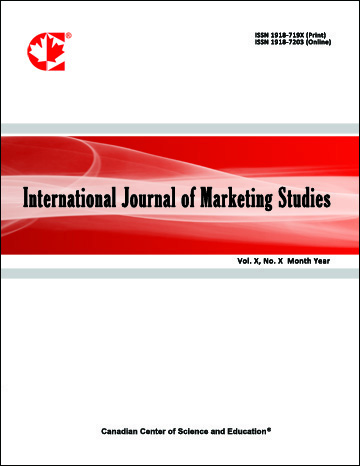Saudi Smokers' Behaviors After a 100% Tax Increase
- Ahmed Mohammed Alqarni
Abstract
The aim of this study was to explore smokers' responses to a 100% tax increase on tobacco prices in Saudi Arabia. According to the World Health Organisation, an increase in tax is the single most effective tool to reduce the incidence of smoking. However, using a tax increase in other health areas (especially in reducing alcohol, sugar, or fat consumption) shows that consumers' reactions can differ according to socio-demographic characteristics. 334 participants of different generational cohorts and incomes completed a questionnaire. It was found that only about 10% of the participants actually reduced their consumption to maintain smoking the same brand, 20% changed to cheaper brands, and over 60% made no changes at all to their smoking behaviours. Age and income played very minor roles. Interestingly, a majority claimed that they were considering quitting smoking, the percentages dropping from 75% of the younger respondents to 56% of the older. The research shows that socio-demographic features play a large part in smokers' behaviour changes in response to a large tax increase on cigarettes. It recommends setting up a minimum price for all brands that could discourage young people from starting to smoke.
- Full Text:
 PDF
PDF
- DOI:10.5539/ijms.v11n1p150
Journal Metrics
Google-based Impact Factor (2021): 1.34
h-index (July 2022): 70
i10-index (July 2022): 373
Index
- Academic Journals Database
- CNKI Scholar
- EconBiz
- Electronic Journals Library
- Excellence in Research for Australia (ERA)
- GETIT@YALE (Yale University Library)
- Harvard Library
- IBZ Online
- Infotrieve
- JournalTOCs
- LOCKSS
- MIAR
- PKP Open Archives Harvester
- RePEc
- ResearchGate
- ROAD
- Scilit
- SHERPA/RoMEO
- Stanford Libraries
- UCR Library
Contact
- Alyssa SunEditorial Assistant
- ijms@ccsenet.org
